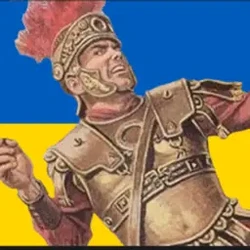Im pretty sure thats still the law
Was and is now, Christianity undoubtedly must have spread its immorality over there too
Did they even really have comedians in those days?
They had troubadours. Maybe it was about them?
I think this is talking about Brehon Laws which dates to about 4th century Ireland and fades after the Norman invasions in the 12th century. Troubadours were mainly situated in southern France in the 12th and 13th century.
Surely some type of comedy performer was part of Celtic culture? We just can’t keep giving the Romans credit for stealing Greek ideas and spreading them willy nilly like a cultural STI, you know?
As far as I know, there’s no evidence for it. Who knows. Maybe the culture was hilarious that they would think it an act hubris for some to ask for money or get up in front of others on the regular to make people laugh. Like we can make each other laugh. We don’t need Colm do stand up there every week. Give the rest of us a turn.
No, the first joke wasn’t invented yet.
In the middle ages, actors could not be buried on consecrated ground. Perhaps this is an instance of the same phenomenon?
Is there source material for this? Or is it just a joke?
deleted by creator
And then along comes the Anglo-Saxons backed by their newly acknowledged religion—from some little place in wherever—and some fresh new “we can do it better” Empirical deas to try out over the next few centuries, as they somehow become the Britons instead of the Britons.
Later they would call the Vikings “barbarians”.
But ain’t that the way it always happens?
This post is describing the Brehon Laws of Ireland. The Vikings arrived in Ireland before the Anglo-Saxons.
By the time the Anglo-Saxons arrived, the Vikings had settled and founded the main cities of Ireland, becoming an integral part of transforming the identity of the people on the island from Gaelic “Scotii” to Irish - Irish has been a multicultural national identity since the beginning.






